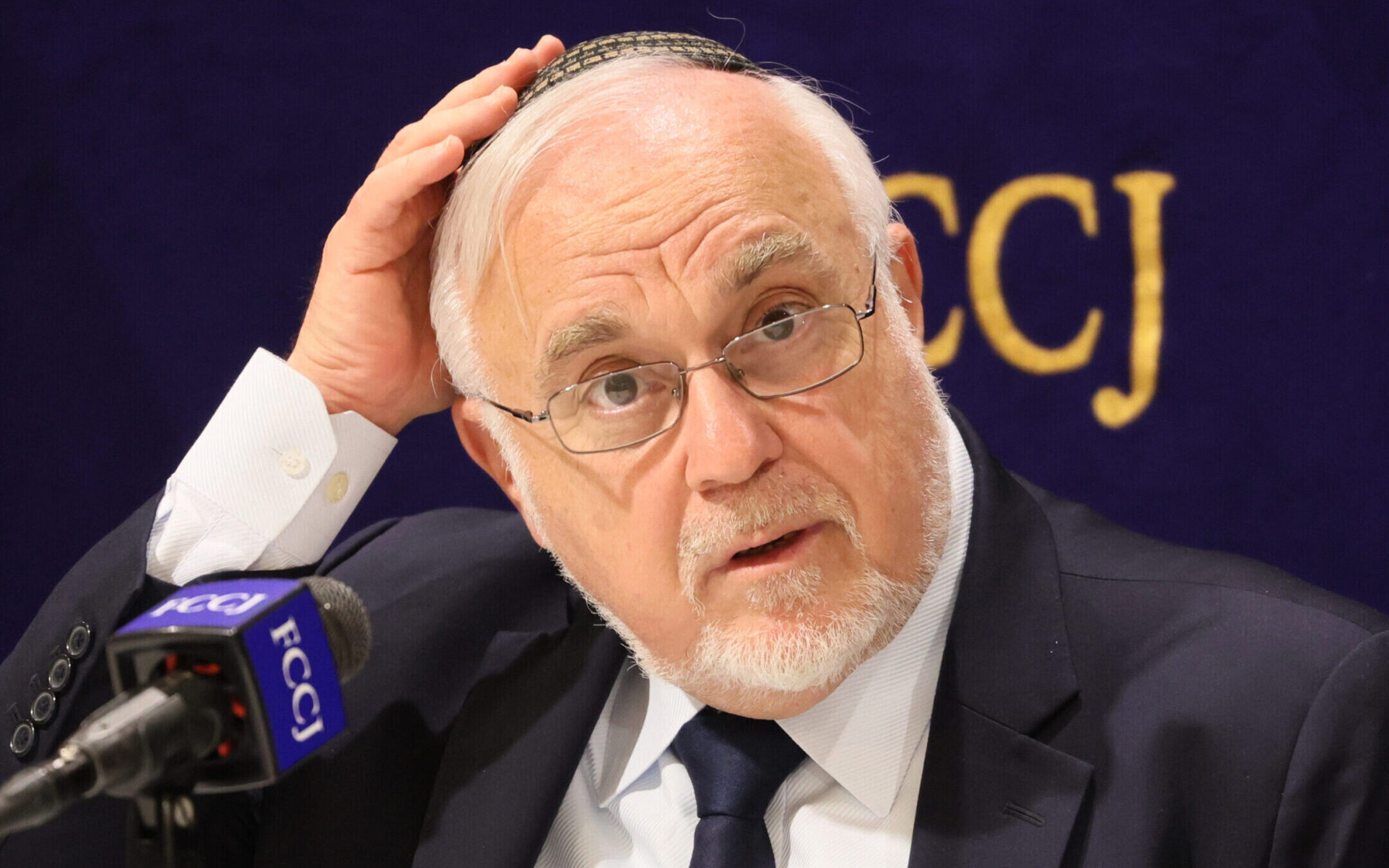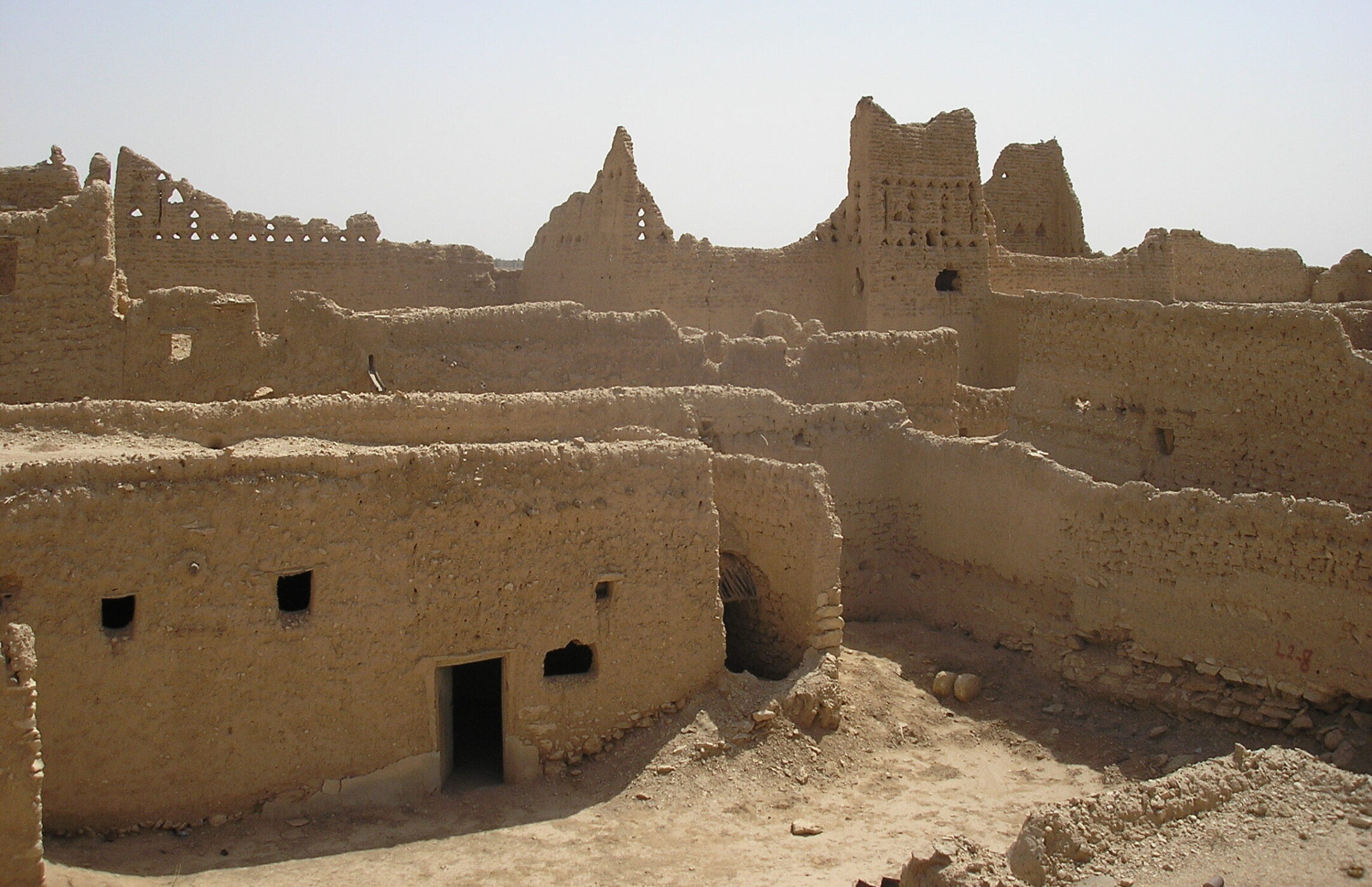US religious freedom commission leaves Saudi Arabia after rabbi co-chair is told to remove his kippah
“No one should be denied access to a heritage site, especially one intended to highlight unity and progress, simply for existing as a Jew”

Rabbi Abraham Cooper, director of the Simon Wiesenthal Center, is seen here during a visit to Tokyo in January 2023. (Photo by Yoshikazu Tsuno/Gamma-Rapho via Getty Images)
(JTA) — A U.S. government delegation tasked with monitoring religious freedom around the world cut a visit to Saudi Arabia short after Saudi officials demanded that a prominent rabbi on the trip remove his kippah.
Saudi officials told Rabbi Abraham Cooper, co-chair of the United States Commission on International Religious Freedom, to remove his kippah while in public, the commission said in a statement on Monday.
Cooper, an Orthodox rabbi and the director of global social action for the Simon Wiesenthal Center advocacy group, “politely” refused the request with the backing of U.S. embassy staff, the statement said.
Saudi officials then escorted the government delegation from the premises of Diriyah, a UNESCO World Heritage site on the outskirts of the Saudi capital, Riyadh. The delegation decided to end its visit to Saudi Arabia prematurely following the incident.
On Tuesday, Saudi officials issued a clarification calling it an “unfortunate incident” that “was the result of a misunderstanding of internal protocols.” It added: “We look forward to welcoming him back to the Kingdom.”
The delegation arrived in Saudi Arabia on March 3 and was invited to visit Diriyah, the original home of the Saudi royal family, two days later. The commission said the visit had been delayed several times and it wasn’t clear on which day the incident occurred. Saudi Arabia’s Ministry of Foreign Affairs had approved the visit.
Saudi officials demanded Cooper remove his kippah while at Diriyah and “any time he was to be in public,” the commission said.
“No one should be denied access to a heritage site, especially one intended to highlight unity and progress, simply for existing as a Jew,” Cooper said in a statement. “Especially in a time of raging antisemitism, being asked to remove my kippah made it impossible for us from USCIRF to continue our visit.”

The city of Diriyah in Saudi Arabia was the original home of the kingdom’s royal family. (Wikipedia)
He added, “We note, with particular regret, that this happened to a representative of a U.S. government agency promoting religious freedom.”
The Saudi embassy in the United States did not immediately respond to a request for comment.
Another leader of the trip, Reverend Frederick A. Davie, a vice chair of the commission, called the incident “stunning and painful,” adding that it indicated that Saudi Arabia stands outside of international norms. The commission has designated Saudi Arabia as a “country of particular concern” due to its “egregious religious freedom violations” every year since 2000.
“This unfortunate incident starkly illustrates that much more work remains to be done for Saudi Arabia to align with international legal protections guaranteeing this fundamental right,” Davie said in a statement.
Davie said the delegation had met with officials from Saudi Arabia’s Ministry of Foreign Affairs, Ministry of Interior and human rights commissioners during the trip.
Cooper has worked extensively with Arab leaders in the Gulf, the commission said. Several Arab states have recently normalized relations with Israel and, in the process, sought to demonstrate their openness to Jewish observance within their borders.
The Saudi Arabia incident comes as the country embarks on a series of reforms, known as the Vision 2030 plan, announced by Crown Prince Mohammed bin Salman in 2016. The plan aims to move Saudi Arabia’s economy away from its dependence on oil and transform the country into a hub for business and tourism.
The plan calls for Saudi Arabia to foster a “vibrant society” that values “cultural traditions” and has seen the country enact some social reforms such as loosening restrictions on women. The United States says the kingdom is still lacking in religious freedoms, though.
The United States and Israel have also worked to foster ties between Jerusalem and Riyadh. The two countries have inched closer in recent years, especially since Israel normalized ties with several Arab states in the Abraham Accords agreement in 2020, but still have not normalized relations. The Oct. 7 attack on Israel and ensuing war in Gaza, and attacks on global shipping by militants in Saudi Arabia’s neighbor, Yemen, have spiked tensions in the region and complicated normalization efforts.
The U.S. Commission on International Religious Freedom aims to advance international freedom of religion by assessing religious rights in foreign countries and making recommendations to the president, the secretary of state and Congress.
The commission’s 2023 report said the kingdom had made minor improvements but that religious freedom “remained poor,” noting that non-Muslims were discriminated against, the country is ruled by religious law, and that apostasy and blasphemy were both serious crimes.
This article originally appeared on JTA.org. This story has been updated.
A message from our Publisher & CEO Rachel Fishman Feddersen

I hope you appreciated this article. Before you go, I’d like to ask you to please support the Forward’s award-winning, nonprofit journalism so that we can be prepared for whatever news 2025 brings.
At a time when other newsrooms are closing or cutting back, the Forward has removed its paywall and invested additional resources to report on the ground from Israel and around the U.S. on the impact of the war, rising antisemitism and polarized discourse.
Readers like you make it all possible. Support our work by becoming a Forward Member and connect with our journalism and your community.
— Rachel Fishman Feddersen, Publisher and CEO


























